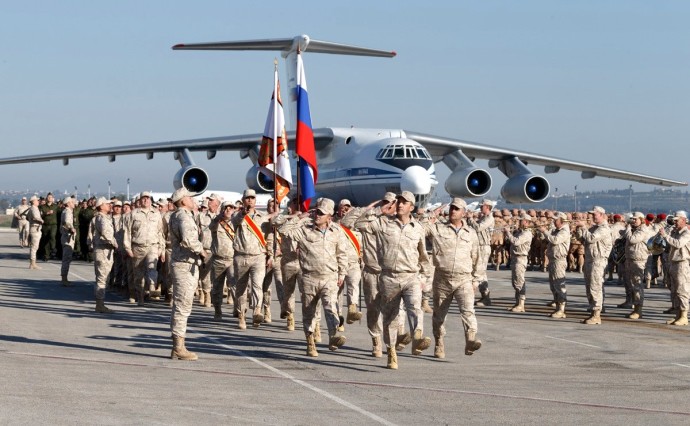Two satellite firms published images showing significant damage to runways at Damascus International Airport after Israel allegedly targeted the site on Thursday.
ImageSat International (ISI) and Maxar Technologies published the pictures on Friday night, hours after Syria’s Ministry of Transport announced that the airport outside the Syrian capital was suspending flights due to technical disruptions.
Syria’s state-controlled SANA news agency claimed that Israel carried out strikes against targets south of Damascus around 4:20 on Friday morning, wounding one person and causing material damage.
The satellite images showed three impact craters on both the military and civilian runways, rendering them inoperable, and “disabled the entire airport until repair,” ISI said.
Russian Foreign Ministry Spokeswoman Maria Zakharova condemned the airstrikes, saying such actions put civilian airlines and civilians in danger.
We demand from the Israeli side to stop this vicious practice
Representative of the Russian Foreign Ministry, Maria Zakharova

"We are compelled to reiterate that the ongoing Israeli shelling of the territory of the Syrian Arab Republic, in violation of the basic norms of international law, is absolutely unacceptable. We strongly condemn Israel's provocative attack on the most important object of the Syrian civilian infrastructure," Zakharova said.
Such "irresponsible actions create serious risks for international air traffic and put the lives of innocent people in real danger,” she continued, adding that "we demand from the Israeli side to stop this vicious practice.”
It was the third strike against targets in Syria blamed on Israel in less than a week.
Israeli attacks
On Monday night, an alleged Israeli airstrike targeted sites south of Damascus. The Syrian Capital Voice site reported on Tuesday morning that the strike had targeted a factory for developing Iranian weapons in the town of Aqraba.
On Tuesday night, Syrian reports alleged that Israeli tanks targeted positions belonging to the Syrian military near El Malgah in the Quneitra region of southwestern Syria.
After the alleged tank fire, Israeli aircraft dropped leaflets warning that Israel would not tolerate any presence of the Syrian military in the demilitarized zone, according to the opposition-affiliated Radio Houran.
Iran intentions
Israel has warned repeatedly about Iran’s nuclear ambitions as well as aspirations of regional hegemony and has admitted to hundreds of airstrikes as part of its “war-between-wars” (known as MABAM in Hebrew) campaign to prevent the transfer of advanced weapons to Hezbollah in Lebanon and the entrenchment of its forces in Syria where they could easily act against the Jewish state.
According to IDF Chief of Staff Lt.-Gen. Aviv Kohavi, Israel has ramped up its campaign, carrying out a double-digit amount of strikes throughout the Middle East in the past two months alone.
Not only have the strikes in Syria destroyed an immeasurable amount of advanced and strategic weaponry, but Iran’s air, land and sea corridors didn’t function for 70% of 2021 due to operations carried out as part of the campaign.
The strikes come on the backdrop of growing tensions with Hezbollah and Iran in Syria, and the weight of the pressure on Iran from Western leaders, chiefly the IAEA resolution to censure Tehran for nuclear violations.
Israel, whose longtime and consistent policy was that Iran's alleged nuclear development requires a harsher approach, wrapped up its largest training exercise in Israeli history two weeks ago, dubbed "Chariots of Fire."
The exercise included simulating striking targets far from Israel’s borders, including Iran. According to a report in Walla! News, the Israel Air Force has learned how to fly its F-35 jets from Israel to Iran without needing mid-air refueling. It has also integrated a one-ton bomb that can be carried inside the F-35's internal weapons bay without jeopardizing its stealth radar signature.
